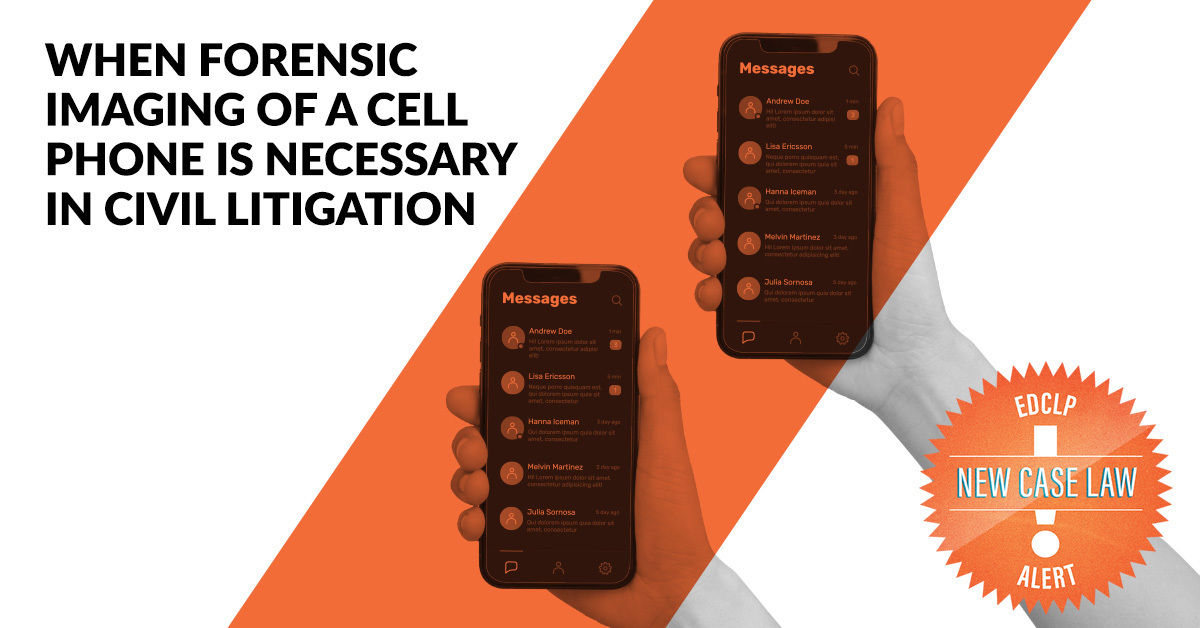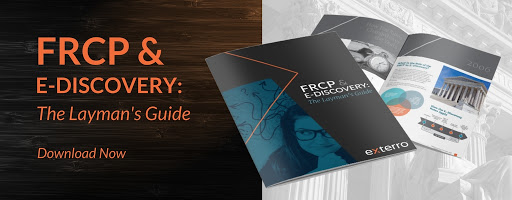E-Discovery
Case Law Alert: When Forensic Imaging of a Cell Phone is Necessary in Civil Litigation
June 3, 2022

Within civil litigation, there are specific instances when conducting a forensic collection (i.e., mirror imaging an electronic device) is deemed reasonable and necessary by the court. Read the Measured Wealth Private Client Group, LLC v. Foster case law alert to learn about one such case where a forensic collection may be necessary.
Overview
In this case the plaintiff moved to compel a forensic review of the defendant’s cell phone.
The plaintiff’s request specifically asked to recover text messages and iMessages between a specific date range. The defendant contended that this request for a forensic examination of this cell phone was a “fishing expedition” that was “too broad and would result in the production of irrelevant text messages and iMessages, [and] that the discovery sought could be obtained from other individuals.”
The plaintiff requested these materials before filing this motion, and the defendant initially agreed to produce them, but never followed through.
Ruling
- Court Orders Forensic Examination of Plaintiff’s Cell Phone. In coming to this ruling, the court noted that the plaintiff adequately showed that the evidence was relevant to the case with a properly tailored production request. The defendant did not prove that the request was disproportionate to the needs of the case.
- Privacy Protection Needed in Forensic Examination. While the court ruled that a forensic examination of the cell phone was warranted, the judge wanted to ensure that the defendant’s privacy was protected regarding personal matters on her phone. To do this, the judge ordered the defendant to use an independent third party to conduct the examination with specific protocols.
- Forensic Examination Privacy Protocols. The judge outlined a process to protect the defendant’s privacy during the forensic examination of her phone, which included: agreeing on an independent forensic examiner and meeting to discuss search terms, which should be a “collaborative effort."

Expert Analysis from Hon. Andrew Peck (Ret.), Senior Counsel, DLA Piper
Judge Matthewman did an excellent job of balancing defendant’s possible private or privileged text messages with plaintiff’s need for responsive text messages. Making the forensic examiner an officer of the court avoids any waiver of privilege, and then he allows defendant to review the recovered data for privilege and relevance before it is produced to plaintiff. In addition, Judge Matthewman calls on counsel to cooperate in the process. This protocol can be a model for use by judges in ordering forensic examinations.
Case Law Tip
Download this guide to understand the rules and requirements for e-discovery practices under the FRCP.
